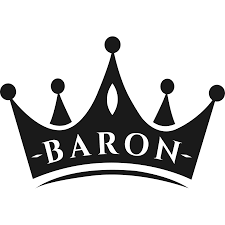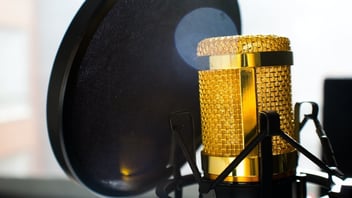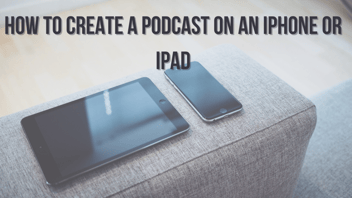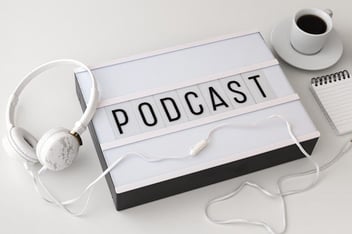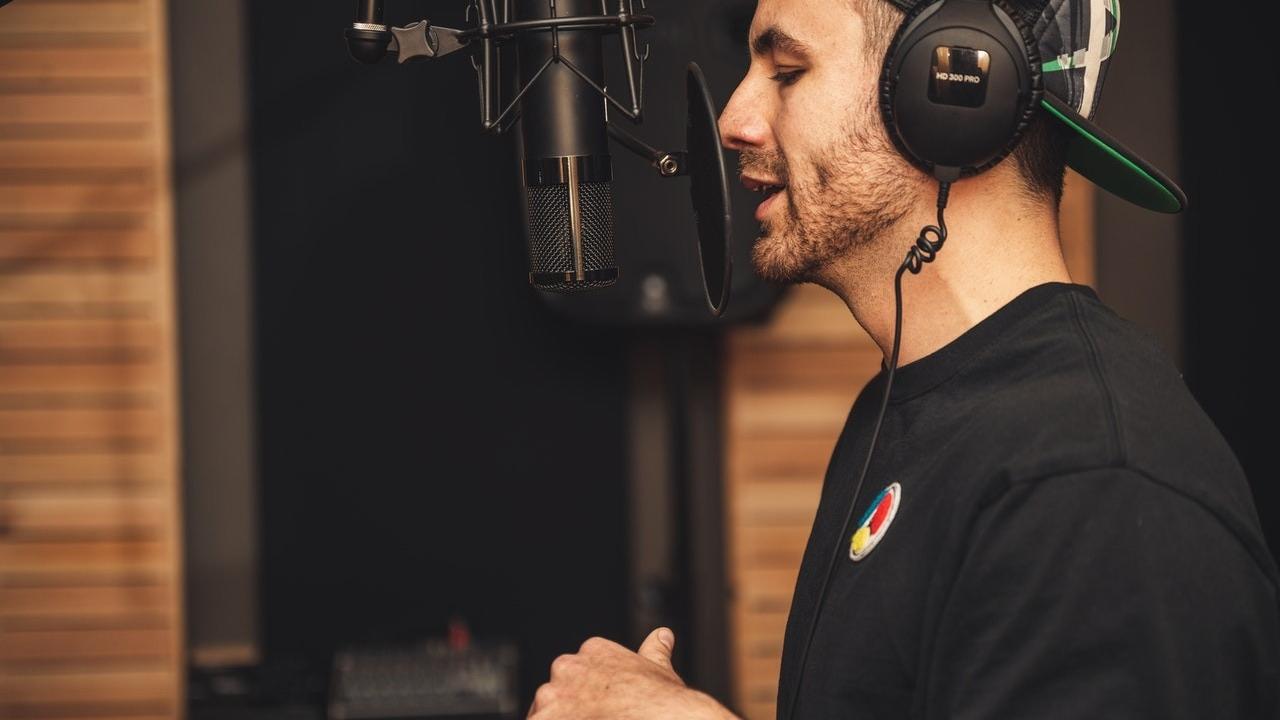
How to start a podcast, and keep it growing
Podcasts are a fantastic way to engage with an audience, get your point across, discuss relevant topics in a digestible way, and even market your business or products if you so wish. Podcasting has grown exponentially in popularity over the last few years and the amount of people choosing to listen to podcasts over other mediums grows more and more daily. There is a rich and reachable audience out there, hungry for interesting, useful, and relatable podcasts. So, how do you reach them? Starting your own podcast may seem like a daunting endeavor but it can be broken down into easily achieved parts. I’ll walk you through everything you need to know about starting your podcast, and keeping it’s growth steady. Following these tips will work wonders for you to get started with your own podcasts in no time.
The First Few Things to Work Out
Topics:
Podcasting, like blogging, is often a niche-specific adventure. While there are many successful podcasts that don’t really stick to one kind of topic, niche, or theme, it’s definitely your safest bet when starting out. Before anything else, you need to decide what you’re going to be talking about. Choose a niche or theme you are either highly knowledgeable or passionate about.
Here’s a quick list of a few of the niches that are performing well
- All things tech
- The news (national and global)
- Self help
- Sports
- Health and fitness
- Music
- Arts and culture
- Politics (be ready for a bit of blowback)
There are many other topics also performing well so if you haven’t come here with a niche already in mind, do some research into the list of popular topics for podcasting.
Marketing Purposes:
If your reason for starting a podcast leans more toward using it as a platform to market your business then consider how you can work your products or services into a particular niche and run with that. If you sell gaming equipment you obviously can’t talk exclusively about that equipment all the time but you can marry that with the broader interests of your target audience and host a podcast on something like the latest news in gaming.
Knowledge Is Key:
Whatever you choose, be sure you know, or can learn enough about it to actually be a voice of authority on the matter. Knowledge is key and your listeners will pick you apart if your points are half-baked and uninformed. You don’t need to be a professor in the field, just be sure you know what you’re talking about and can defend your position if needed.
Live or Pre-recorded
You need to decide if you are going to stream your podcast sessions live, or pre-record them for release at a certain time. This decision is important because it has an impact on your choice of RSS (we’ll get to that in a bit), as well as platform, equipment, and software. Choose what most suites the end goals of your podcast.
Live Podcasting
This is closer to a kind of “live radio seassion” compared to that of a pre-recorded podcast. Podcasting live comes with its own benefits and drawbacks. The biggest challenge is the inability to edit the session while one of the biggest benefits is the ability to take live calls and keep your audience engaged through doing so.
Pre-recorded podcasting
When you pre-record, you have more time to organize everything how you want it. You also have more control over flow and the final product due to being able to edit and even re-record if the need arises. You also feel less under pressure during the session. However, you cannot actively engage with your audience through live calls or QnA sessions.
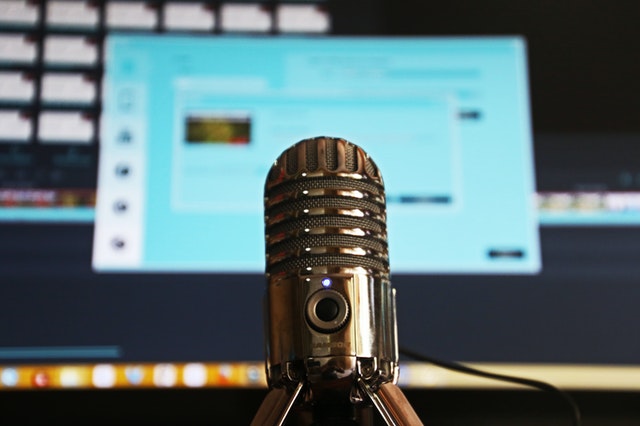
Equipment and software
Starting your own podcast requires some basic equipment for your recording, editing, and uploading. Here’s the list of essentials and why you need them. Also check out this blog that has a full breakdown of the best podcast items under $500.
Computer: By this I mean a Windows laptop, Desktop PC, or Mac. Your recording, editing, and uploads will all be done on this PC so make sure it’s got the specs to handle the job. Here’s a list of the best ones out there.
Microphone: There’s no podcast if you can’t record so a mic is paramount. Choose wisely when purchasing your mic and don’t skimp if you don’t have to. The better the microphone, the better your whole session sounds.
Headphones: When recording, it’s important you hear yourself over some headphones. What you hear is what will be recorded so this gives you a chance to monitor the quality of the sound and pick up any buzz on the fly instead of at the end when you’re already done. This can potentially save hours of do-overs and post-editing.
Sound Interface: This little guy takes what you put through the mic and translates it into a signal your computer can work with. It’s an essential part of getting good, clean audio.
Mic Cables: Simple but important, the common mic XLR joins your microphone to the interface and without them you’re not getting anywhere.
Mixer: A sound mixer gives you control over the quality of your sound and allows you to equalize your voice and make adjustments to get the best quality possible. You can instantly adjust gain, highs, mids, and lows, as needed. This is especially useful if there’s going to be more than one speaker in a session as everyone sounds a little different when speaking through a microphone.
Shock Mount: While not absolutely imperative, this little bad boy is extremely helpful. It mitigates unwanted sound generated by physical shockwaves your microphone experiences when you bump the desk, adjust your mic, or the like. Those unwanted sounds can be a major distraction for both you and the listeners.
Editing Software: Even if you’re going live, you’re going to want to edit your live sessions for later access. So either way, you’re going to need decent editing software. If you’re on a budget, there’s some free software out there that will do the trick such as Audacity. If you’re budget is a little bigger, there’s more advanced software like Adobe Audition. The choice is yours really. Almost all editing software gives you the basic functions needed to edit a podcast session. Beware that some have much steeper learning curves than others.
Podcast Hosting & The Best Providers
Alongside topic choice and quality, hosting is an extremely important part of the podcasting process. You need to open a podcasting account with a popular podcast hosting site otherwise you will have almost no reach at all. This is Where RSS comes in. There is a definitive difference between sites that host your mp3’s and those that simply host the links for people to access them on. You’re going to want both.
Top sites for actual hosting:
- Buzzsprout
- Podbean
- Sound Cloud
- Libsyn
- Fusebox
- Castos
Of these, Buzzsprout is the most comprehensive and has a lot to offer. Check them out.
Best podcast platforms/directories
Apple Podcasts
Spotify
iHeart radio
TuneIn
Google Play Music
These picks are based on pricing, features, popularity, and my personal opinion. There are many others that are probably just as good though.
The way you want to do it is to create a host account with a site like those from the host list where you can upload your actual files for access. Then, to further your reach, pick at least two of the most popular directory sites to use that display your podcasts and link back to the RSS that hosts them.
Sidenote
Do not, I repeat, DO NOT, host your physical files on your own podcast’s website. This will bog the site down and chase your traffic away very quickly!
Design!
Your podcast is going to need a catchy name and equally appealing artwork to go with it. Think through a list of ten names and refine that down to the one that’s most attractive. Check online that there are no existing podcasts with the chosen name too.
Your logo and related visual artwork is important in grabbing the random scroller’s attention. For its design you can hire a local professional or outsource the work on any of the major freelance sites available.
Here’s a few to try if you choose that route
- Upwork
- Freelancer
- Fiverr
- 99Designs
- People per hour

Plan Your Podcast, Plan The Recording, Plan The Execution
Once you have your equipment, are familiar with how to use it, and have a place to post your finished work, you need to sit down and plan it all out in detail.
Theme/topic: this will be your main topic in which all your episodes fit, your “vibe and feel” so to speak. Be sure it’s rich enough to continually have content. Themes like the news are constantly updating and there’s no shortage of content but other more niche themes can be tough to constantly produce content for. Be sure it’s something that will remain interesting and can grow.
Episodes: Before you record your first episode you will want to have at least 10 episodes planned out. They don’t have to be detailed but you’re gonna want to know what direction you’re headed in and what’s on the horizon. Always have at least ten episode outlines on-book.
Structure: How is the actual episode going to look? How many hosts are there? Is it an interview-type show? Perhaps a discussion? You need to decide on the structure and format of your show. The above questions need to be answered and you need to decide on details like what your intro and outro will be, etc.
Wrapping up the details
Once you have your theme, structure, episode titles, artwork, equipment and the rest sorted out, you’ll want to wrap up the details of your first few episodes. Specific content for the whole session, guests (if you’re hosting any), research, and a few equipment tests are the most important things to tick off. Once that’s all done, the fun part comes – the launch!
The launch
Now that everything is ready, you need to decide on a launch date for your first episode to air or become available. You need to market that date like it’s the last day on earth. Get the word out on every single social media platform there is, tell EVERYONE! The more listeners you pick up on your first show, the more exponential growth potential there is. More about the marketing of your show below!
Gaining an audience, and maintaining growth
Starting a podcast is one thing, getting people to listen to it and growing that base, is a different beast entirely (a tamable one, don’t worry). There are tons of new tools and methods to utilize when looking to market anything online. I’m going to break down a few of the most successful methods to gain and scale your listener base.
Social Media – Duh
Social media marketing is an incredibly powerful tool nowadays if used correctly. Facebook, Twitter, Snapchat, Instagram, and even YouTube can be honestly be your best friend if you’re willing to put in a bit of work.
There are many different ways to promote on social media. Start with posting about your launch date. Build anticipation for it in whichever way suits you but ensure people are chomping at the bit to hear that first episode. You could do this using imagery and quoptes from the first episode on Instagram and snapchat, releasing short snippets taken from the first recording, generating a pre-launch discussion, etc. Find what works for you and run hard with it. And remember, share, share, share. Reward your followers and fans for their shares and retweets if you can in some small way. Especially in the beginning.
Host guests with a big following
It’s neither uncommon nor wrong to use your guest’s authority and popularity to gain a bigger listener base. Talk to your guest beforehand and come to an agreement that puts you in front of his or her social media following before, during, and after the show. Nothing invasive or tacky though. If done right, and the show the guest features on goes well, you’re looking at adding a serious number to your own base every time you do this.
YouTube is your friend
The traffic on YouTube is incredible. Consider converting your mp3s to video with some catchy graphics and a well written description. Upload these to a dedicated channel and generate a YouTube following. There are actually quite a few podcasts even I myself listen to exclusively on YouTube.
You need a website
The sites that host your podcasts will never be able to give your listeners all the information they are looking for about you. For this, there’s the website option – although I’d go so far as to say it’s more a need than an option. Have a simple but professional and engaging website designed specifically for your podcasting. This is not where you will host them (although you can pop their links on a page here) but its where people can find out more about you, get updates, and connect in more ways.
Get promoters to mention you
Using promoters on social media or youtube is another effective way of leveraging someone elses audience for mutual benefit. Approach a few promoters (popular and relevant people with a large follower base), and pitch some ideas that get them mentioning you on their channel or social media account, in return for something similar from you. Try to approach people who have something to do with what you talk about to some extent. In other words, don’t approach a popular photography YouTuber to mention you if your podcast is about pet care. It won’t translate well with the audience and you won’t be shown much interest.

A few things to remember in closing
Try to find a happy medium between these and other methods of promotion. Once your base starts gaining momentum you can host events and competitions on social media for hitting x amount of followers/subscribers, etc. Think of ways to bridge between these different platforms to keep people engaged. Remember, you will always have a hardcore fan base. These are your lifers, the ones that will listen to every word you put out forever. Then you have the mostly-constants, the lukewarm listeners, and then the one-and-doners. So numbers across the board may fluctuate slightly but give it time, and you will start to see steady growth.
Technical issues are common and sometimes unavoidable. Don’t panic when they happen, especially if you’re live. Treat each one as a learning curve that makes you better every time.
Lastly, remember you’re human. Even scripted words don’t always come out perfect. Cut yourself some slack and don’t be too harsh on yourself. Give some room for natural errors. Your listeners are not looking for perfection they’re looking for relatability.
Now, go get em!
